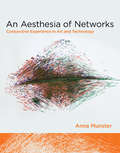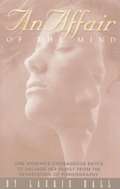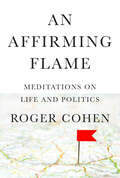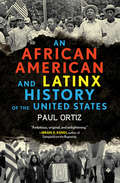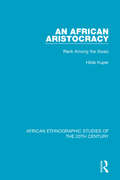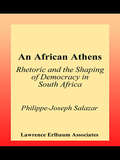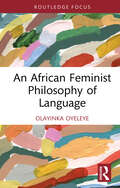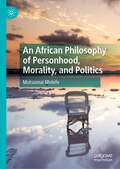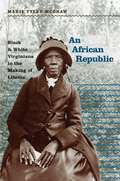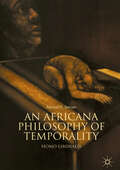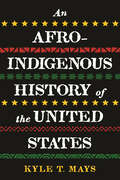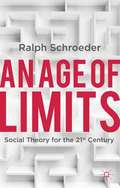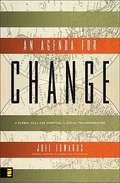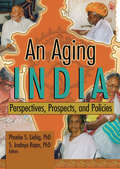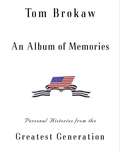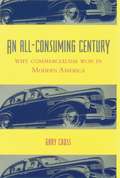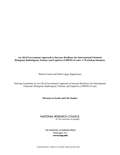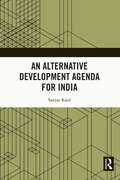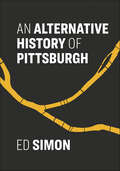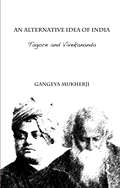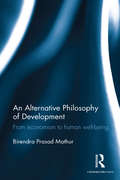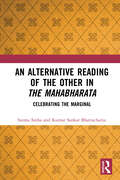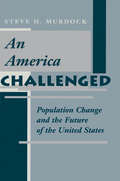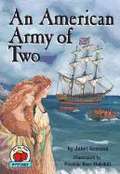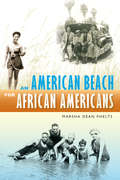- Table View
- List View
An Aesthesia of Networks: Conjunctive Experience in Art and Technology (Technologies of Lived Abstraction)
by Anna MunsterThe experience of networks as the immediate sensing of relations between humans and nonhuman technical elements in assemblages such as viral media and databases.Today almost every aspect of life for which data exists can be rendered as a network. Financial data, social networks, biological ecologies: all are visualized in links and nodes, lines connecting dots. A network visualization of a corporate infrastructure could look remarkably similar to that of a terrorist organization. In An Aesthesia of Networks, Anna Munster argues that this uniformity has flattened our experience of networks as active and relational processes and assemblages. She counters the “network anaesthesia” that results from this pervasive mimesis by reinserting the question of experience, or aesthesia, into networked culture and aesthetics.Rather than asking how humans experience computers and networks, Munster asks how networks experience—what operations they perform and undergo to change and produce new forms of experience. Drawing on William James's radical empiricism, she asserts that networked experience is assembled first and foremost through relations, which make up its most immediately sensed and perceived aspect. Munster critically considers a range of contemporary artistic and cultural practices that engage with network technologies and techniques, including databases and data mining, the domination of search in online activity, and the proliferation of viral media through YouTube. These practices—from artists who “undermine” data to musicians and VJs who use intranetworked audio and video software environments—are concerned with the relationality at the core of today's network experience.
An Affair of the Mind: One Woman's Courageous Battle to Salvage Her Family from the Devastation of Pornography
by Laurie HallWhen You're Blinded by Lust, You See No Evil ... It began with a casual glance at a girlie magazine but turned into something far more insidious. "Innocent" fascination with softcore pornography eventually led to skin flicks, frequent visits to strip clubs, and encounters with prostitutes. Jack Hall's secret obsession was just that-a secret. And right before her eyes, Laurie watched her husband dissolve into a shadow of the man she loved. None of it made sense. Compelling and poignant, An Affair of the Mind tells the story of one woman's struggle to protect herself and her children from the devastating effects of pornography. With both candor and sensitivity, Laurie Hall relives the nightmare that nearly destroyed her family, warning others of porn's seductive, addictive nature. She opens her heart and bares her soul, imparting keen insights and comfort. And she shares the hard lessons God taught her-among them, the virtues of patience, trust, and perseverance.
An Affirming Flame: Meditations on Life and Politics
by Roger Cohen&“For more than forty years Roger Cohen has ventured to every corner of the earth to chronicle the great upheavals of our age, but he&’s never lost sight of what really matters: love, hope, and all the mysteries of the human heart. Here, in this collection of columns that will take you from the streets of Kyiv to an execution chamber in Alabama, you can read him at his best.&”—Dexter Filkins, best-selling author of The Forever WarA collection of the finest New York Times columns written by Roger Cohen over more than a decade, accompanied by an original, twenty-thousand-word essay on the state of the worldThe countless readers who followed Roger Cohen&’s column and mourned its end responded above all to what they saw as the marriage in his writing of head and heart. That tenor permeates An Affirming Flame.During his twelve years as a columnist, Cohen aimed to hold power to account at home and abroad, in the name of freedom, decency, pluralism, and the importance of truth and dissent in open societies. He watched with alarm as the outside threat of 9/11 morphed into the internal threat of January 6. This time, the assailants were not jihadi terrorists; they were American white supremacists and seditionists convinced of American decadence but unable to see that they personified it. The threat to American democracy is clear.Cohen dissects this ominous American fracture. He explores themes of displacement, belonging, and his own imperiled craft of journalism. His examination of the rising tide of authoritarian rule takes him to China, and in Kyiv he sees the devastating impact of Vladimir Putin's Russian nationalism. With its trenchant consideration of the plight of refugees, COVID-19, the Israeli-Palestinian conflict, and the war in Afghanistan, Cohen's writing reflects his belief in the unquenchable human quest for dignity.He captures the fight to defend America&’s openness, democratic institutions, and ideals against the rising tide of retrogression, division, and assault on truth. This struggle, as Cohen writes, is also the world&’s. It is inseparable from the battle to save humanity from the creeping autocracy of the twenty-first century. As he writes, &“On lies is tyranny built.&”
An African American and Latinx History of the United States
by Paul OrtizAn intersectional history of the shared struggle for African American and Latinx civil rightsSpanning more than two hundred years, An African American and Latinx History of the United States is a revolutionary, politically charged narrative history arguing that the “Global South” was crucial to the development of America as we know it. Ortiz challenges the notion of westward progress, as exalted by widely taught formulations such as “manifest destiny” and “Jacksonian democracy,” and shows how placing African American, Latinx, and Indigenous voices unapologetically front and center transforms American history into the story of the working class organizing against imperialism.In precise detail, Ortiz traces this untold history from the Jim Crow-esque racial segregation of the Southwest, the rise and violent fall of a powerful tradition of Mexican labor organizing in the twentieth century, to May 1, 2006, International Workers’ Day, when migrant laborers—Chicana/os, Afro-Cubanos, and immigrants from nearly every continent on earth—united in resistance on the first “Day Without Immigrants.”Incisive and timely, An African American and Latinx History of the United States is a bottom-up history told from the viewpoint of African American and Latinx activists and revealing the radically different ways people of the diaspora addressed issues still plaguing the United States today.
An African Aristocracy: Rank Among the Swazi
by Hilda KuperOriginally published in 1947 and reprinted with a new preface in 1961, this book is based on field studies and gives an account of the social organization of the Swazi, wiith special reference to the aristocratic structure of their society and the way in which birth and rank determine social relationships and activities. The book provides a historical picture of the Swazi and the part played by them during the period of European expansion in British and Boer conflicts in South Africa. The economic structure of a society based on agriculture and the influence exerted over every aspect of social activity by the conservative and aristocratic political hierarchy is analyzed and post-War changes and their effect upon the Swazi also reviewed.
An African Athens: Rhetoric and the Shaping of Democracy in South Africa (Rhetoric, Knowledge, and Society Series)
by Philippe-Joseph SalazarAn African Athens offers an analysis of a new ecology of rhetoric--the reshaping of a nation into a democracy through rhetorical means. Author Philippe-Joseph Salazar provides a general view of issues as they have taken shape in the apartheid and post-apartheid South African experience, presenting the country as a remarkable stage for playing out the great themes of public deliberation and the rise of postmodern rhetorical democracy. Salazar's intimate vantage point focuses on the striking case of a democracy won at the negotiating table and also won every day in public deliberation. This volume presents a full-scale rhetorical analysis of a democratic transformation in post-Cold War era, and provides a study of the demise of apartheid and post-apartheid from the standpoint of political and public rhetoric and communication. In doing so, it serves as a template for similar enquiries in the rhetorical study of emerging democracies. Intended for readers engaged in the study of political and public rhetoric with an interest in how democracy takes shape, An African Athens highlights South Africa as a test case for global democracy, for rhetoric, and for the relevance of rhetoric studies in a postmodern democracy.
An African Feminist Philosophy of Language (ISSN)
by Olayinka OyeleyeThis book calls for the institution of an African feminist philosophy of language, challenging existing debates and encouraging a move away from the Western gaze.The book begins with an analysis of the philosophical context of African feminism, and a call for the decolonization of epistemological discourse. Oyeleye then goes on to consider how indigenous patriarchies play out in the cultural reality of the Yorùbá in particular, ontologically unpacking the nature of woman as expressed in language, especially in myths and proverbs. Challenging the derogatory language found in proverbs which entrench patriarchal oppression, the author advocates for feminist postproverbials: new proverbs which draw on old traditions but reconstruct the space of woman in a new, egalitarian rhetorical tradition. The author concludes by outlining the conditions necessary for African feminist philosophers to consider language as a decolonizing space which can help to push through the agenda of social change.This book will be an important resource for researchers from across the fields of gender and women studies, feminist philosophy, philosophy of language, cultural studies, and African studies.
An African Philosophy of Personhood, Morality, and Politics
by Motsamai MolefeThis book explores the salient ethical idea of personhood in African philosophy. It is a philosophical exposition that pursues the ethical and political consequences of the normative idea of personhood as a robust or even foundational ethical category. Personhood refers to the moral achievements of the moral agent usually captured in terms of a virtuous character, which have consequences for both morality and politics. The aim is not to argue for the plausibility of the ethical and political consequences of the idea of personhood. Rather, the book showcases some of the moral-political content and consequences of the account it presents.
An African Republic
by Marie Tyler-McgrawThe nineteenth-century American Colonization Society (ACS) project of persuading all American free blacks to emigrate to the ACS colony of Liberia could never be accomplished. Few free blacks volunteered, and greater numbers would have overwhelmed the meager resources of the ACS. Given that reality, who supported African colonization and why? No state was more involved with the project than Virginia, where white Virginians provided much of the political and organizational leadership and black Virginians provided a majority of the emigrants.In An African Republic, Marie Tyler-McGraw traces the parallel but seldom intersecting tracks of black and white Virginians' interests in African colonization, from revolutionary-era efforts at emancipation legislation to African American churches' concern for African missions. In Virginia, African colonization attracted aging revolutionaries, republican mothers and their daughters, bondpersons schooled and emancipated for Liberia, evangelical planters and merchants, urban free blacks, opportunistic politicians, Quakers, and gentlemen novelists. An African Republic follows the experiences of the emigrants from Virginia to Liberia, where some became the leadership class, consciously seeking to demonstrate black abilities, while others found greater hardship and early death. Tyler-McGraw carefully examines the tensions between racial identities, domestic visions, and republican citizenship in Virginia and Liberia.
An Africana Philosophy of Temporality: Homo Liminalis
by Michael E. SawyerThis book is a timely intervention in the areas of philosophy, history, and literature. As an exploration of the modern political order and its racial genealogy, it emerges at a moment when scholars and activists alike are wrestling with how to understand subject formation from the perspective of the subordinated rather than from dominant social and philosophical modes of thought. For Sawyer, studying the formation of racialized subjects requires a new imagining of marginalized subjects. Black subjectivity is not viewed from the static imaginings of social death, alienation, ongoing abjection, or as a confrontation with the treat of oblivion. Sawyer innovates the term "fractured temporality," conceptualizing Black subjects as moving within and across temporalities in transition, incorporated, yet excluded, marked with the social death of Atlantic slavery and the emergent political orders it etched, and still capable of exerting revolutionary force that acts upon, against, and through racial oppression.
An Afro-Indigenous History of the United States
by Kyle T. MaysThe first intersectional history of the Black and Native American struggle for freedom in our country that also reframes our understanding of who was Indigenous in early AmericaBeginning with pre-Revolutionary America and moving into the movement for Black lives and contemporary Indigenous activism, Afro-Indigenous historian, Kyle T. Mays argues that the foundations of the US are rooted in antiblackness and settler colonialism, and that these parallel oppressions continue into the present. He explores how Black and Indigenous peoples have always resisted and struggled for freedom, sometimes together, and sometimes apart. Whether to end African enslavement and Indigenous removal or eradicate capitalism and colonialism, Mays show how the fervor of Black and Indigenous peoples calls for justice have consistently sought to uproot white supremacy.Mays uses a wide-array of historical activists and pop culture icons, &“sacred&” texts, and foundational texts like the Declaration of Independence and Democracy in America. He covers the civil rights movement and freedom struggles of the 1960s and 1970s, and explores current debates around the use of Native American imagery and the cultural appropriation of Black culture. Mays compels us to rethink both our history as well as contemporary debates and to imagine the powerful possibilities of Afro-Indigenous solidarity.
An Age of Limits: Social Theory for the 21st Century
by Ralph SchroederAn Age of Limits outlines a new social theory for understanding contemporary society. Providing an analysis of why political, economic and cultural powers face constraints across the global North and beyond, this bold book argues that forces which address current challenges must confront the limits of the interplay between dominant institutions.
An Agenda for Change
by Joel EdwardsThis is a compelling tract for our times (manifesto) addressed to evangelicals around the English-speaking world from the general director of the Evangelical Alliance. This umbrella group represents evangelical Christians in the United Kingdom and is part of the larger World Evangelical Alliance of 128 national and seven regional alliances including the National Association of Evangelicals in the USA. ?Written in an accessible style this short and readable manifesto issues a prophetic call to help set the agenda for evangelicals to: -Present Christ credibly the 21st century -Rehabilitate term "evangelical" as good news -Engage in spiritual and social transformation The book includes discussion questions to enable classes, groups, and teams to read and discuss the contents of the book. As the church faces challenges and opportunities, this book can serve as a catalyst to move the evangelical church forward to make a difference in the world by fostering spiritual and social transformation.
An Aging India: Perspectives, Prospects, and Policies
by S. Irudaya Rajan Phoebe S LiebigExplore Indian policy and practice on aging from a variety of perspectives! This pathbreaking collection provides something that has been missing in the literature on aging in India, especially for non-Indian audiences: studies of various aspects of aging in India combined with analyses of current policies, policy trends and recommendations. You'll examine aging issues from a variety of perspectives-demographic foundations, social and family relations, economics, health and disability, current interventions, and advocacy and policy. An Aging India also provides you with up-to-date references, explanations of differences and similarities within India's diverse population, examples of programs in various settings including a geriatric hospital, a major NGO, and old-age homes, and an overview of the development of India's national policy on aging. Where appropriate, comparisons with U.S. policy approaches are noted. An Aging India: Perspectives, Prospects, and Policies examines: the demography of aging in India the current state of research on aging, and the pitfalls associated with that research income, poverty, and the problems created by the lack of any widespread retirement income system in India the health status of Indian elders and what their healthcare prospects are the situation for the disabled elderly in India elder abuse in the Indian context social networks and grassroots organizations for seniors in India the role of Indian geriatric hospitals and old-age homes The insights of the top researchers and practitioners who contributed to An Aging India: Perspectives, Prospects, and Policies will strike home with their counterparts around the world. Make this book a part of your professional/teaching collection today!
An Album of Memories: Personal Histories from the Greatest Generation
by Tom BrokawA seventeen-year-old who enlisted in the army in 1941 writes to describe the Bataan Death March. Other members of the greatest generation describe their war — in such historic episodes as Guadalcanal, the D-Day invasion, the Battle of the Bulge, and Midway — as well as their life on the home front. In this beautiful American family album of stories, reflections, memorabilia, and photographs, history comes alive and is preserved, in people’s own words and through photographs and time lines that commemorate important dates and events. Starting with the Depression and Pearl Harbor, on through the war in Europe and the Pacific, this unusual book preserves a people’s rich historical heritage and the legacy of the heroism of a nation.
An All-Consuming Century: Why Commercialism Won in Modern America
by Gary CrossThe unqualified victory of consumerism in America was not a foregone conclusion. The United States has traditionally been the home of the most aggressive and often thoughtful criticism of consumption, including Puritanism, Prohibition, the simplicity movement, the '60s hippies, and the consumer rights movement. But at the dawn of the twenty-first century, not only has American consumerism triumphed, there isn't even an "ism" left to challenge it. An All-Consuming Century is a rich history of how market goods came to dominate American life over that remarkable hundred years between 1900 and 2000 and why for the first time in history there are no practical limits to consumerism.By 1930 a distinct consumer society had emerged in the United States in which the taste, speed, control, and comfort of goods offered new meanings of freedom, thus laying the groundwork for a full-scale ideology of consumer's democracy after World War II. <P><P>From the introduction of Henry Ford's Model T ("so low in price that no man making a good salary will be unable to own one") and the innovations in selling that arrived with the department store (window displays, self service, the installment plan) to the development of new arenas for spending (amusement parks, penny arcades, baseball parks, and dance halls), Americans embraced the new culture of commercialism—with reservations. However, Gary Cross shows that even the Depression, the counterculture of the 1960s, and the inflation of the 1970s made Americans more materialistic, opening new channels of desire and offering opportunities for more innovative and aggressive marketing. The conservative upsurge of the 1980s and '90s indulged in its own brand of self-aggrandizement by promoting unrestricted markets. The consumerism of today, thriving and largely unchecked, no longer brings families and communities together; instead, it increasingly divides and isolates Americans.Consumer culture has provided affluent societies with peaceful alternatives to tribalism and class war, Cross writes, and it has fueled extraordinary economic growth. The challenge for the future is to find ways to revive the still valid portion of the culture of constraint and control the overpowering success of the all-consuming twentieth century.
An All-of-Government Approach to Increase Resilience for International Chemical, Biological, Radiological, Nuclear, and Explosive (CBRNE) Events
by Sherrie ForrestChemical, Biological, Radiological, Nuclear, and high-yield Explosive (CBRNE) events have the potential to destabilize governments, create conditions that exacerbate violence or promote terrorism. This can trigger global repercussions. These events can quickly overwhelm the infrastructure and capability of the responders, especially in countries that do not have the specialized resources for response like those available in the United States. When a CBRNE incident occurs in a partner nation or other foreign country, the U. S. is often called upon to provide assistance. Interoperability - the ability to work together - among U. S. agencies, foreign governments, and responders involved in the effort is key to an efficient response. The effectiveness of the U. S. response and approach to CBRNE events in partner nations depends on the capability of the U. S. government to provide timely and appropriate assistance and the resilience of the partner nation to a CBRNE event. "An All-of-Government Approach to Increase Resilience for International Chemical, Biological, Radiological, Nuclear, and Explosive (CBRNE) Events" is the summary of a workshop convened in June 2013 by the National Institute of Standards and Technology and the National Research Council to discuss ways to strengthen the U. S. ability to prepare for and respond to CBRNE events that occur in U. S. partner nations. The workshop brought together diverse experts and stakeholders to identify capabilities that are necessary for responding to an international CBRNE event; discuss best practices and resources needed for improved interoperability of the U. S. and partner nation during response to a CBRNE event; and identify key questions that need to be addressed in follow up activities focused on improving U. S. CBRNE response in partner nations.
An Alternative Development Agenda for India
by Sanjay KaulThis book provides a revamped, transformative, and fiscally sustainable developmental agenda for India to radically improve the well-being and livelihoods of its citizens. Grounded in a ‘people first’ approach, this alternative agenda focuses on seven vital development and inter-connected areas, including health, education, food and nutrition, child development, gender, livelihood and jobs, and urbanization. The volume highlights the systemic issues plaguing these sectors and offers pragmatic and implementable solutions to address them. The author takes cognizance of the COVID-19 pandemic and draws attention to the limitations of the current public policies and suggests cost-effective interventions and strategies that focus on the poor. The volume discusses crucial themes of universalizing healthcare, battling malnutrition and food insecurity, ensuring quality schooling, unshackling gendered mindsets, enhancing livelihoods and improving the urban quality of life to spell out a pragmatic and workable development agenda for India. Accessible and reader-friendly, the book will be an essential read for scholars and researchers of development studies, economics, public policy, governance, development policy, public administration, political studies, South Asia studies. It will also be of interest to professionals in the development sector.
An Alternative History of Pittsburgh
by Ed Simon&“[An] epic, atomic history of the Steel City . . . a work of literature, a series of linked creative nonfiction essays, an historical story cycle.&” ―Phillip Maciak, Los Angeles Review of Books The land surrounding the confluence of the Allegheny, Monongahela, and Ohio rivers has supported communities of humans for millennia. Over the past four centuries, however, it has been transformed countless times by the many people who call it home. In this brief, lyrical, and idiosyncratic collection, Ed Simon, a staff writer at The Millions, follows the story of Pittsburgh through a series of interconnected segments, covering all manner of beloved people, places, and things, including: • Paleolithic Pittsburgh • The Whiskey Rebellion • The attempted assassination of Henry Frick • The Harmonists • The Mystery, Pittsburgh&’s radical, Black nationalist newspaper • The myth of Joe Magarac • Billy Strayhorn, Duke Ellington, Andy Warhol, and much, much more. Accessible and funny, An Alternative History of Pittsburgh is a must-read for anyone curious about this storied city, and for Pittsburghers who think they know it all too well already. &“[A] rich and idiosyncratic history . . . Even Pittsburgh history buffs will learn something new.&” —Publishers Weekly &“Simon tells the story of the city and all the changes that made it what it is today in a way that's entirely new, by the hand of someone who is deeply familiar.&” ―Juliana Rose Pignataro, Newsweek &“A sparkling new take on everyone&’s favorite Rust Belt metropolis.&” ―Justin Velluci, Jewish Chronicle &“A brilliant look at how geology and art, politics and religion, disaster and luck combine to build America&’s great cities―one that will leave you wondering what secrets your own hometown might be hiding.&” ―Anjali Sachdeva, author of All the Names They Used for God
An Alternative Idea of India: Tagore and Vivekananda
by Gangeya MukherjiThis book attempts to unravel the worldview of two prominent Indians of recent Indian history — Tagore and Vivekananda. Both suggested emancipation through political struggles but without transgressing the boundaries of humanism. This is significant, as identifying an enemy was an intrinsic part of nationalistic formulations. The larger philosophy of life, for Tagore and Vivekananda, was to reach out across geographical borders.In this work, their alternative idea of India is analysed in the larger context of the many formulations of nationalism with special reference(s) to theoretical as well as literary works in European and Indian contexts. The author brings on board critiques that have emerged recently —secularist, feminist and postcolonial — and defends his subjects against them. This book is essentially an intellectual interrogation of two eminent thinkers of their time, and falls within the rubric of intellectual history.
An Alternative Philosophy of Development: From economism to human well-being
by Birendra Prasad MathurWhile development has been the foremost agenda before successive governments in India, it has been viewed narrowly – from the perspective of economic development and particularly in terms of gross domestic product (GDP). This book questions such an approach. It breaks from the conventional wisdom of GDP growth as being a definitive measure of the success of a country’s policies and offers an alternative development philosophy. The author contends that people’s economic and social welfare, life satisfaction, self-fulfilment and happiness should be treated as indicators of real development. The book underlines that in a successful model of development, the country’s economic policies will have to synergize with its cultural ethos and that the objective of development should be gross national happiness and well-being of the people. This book will be useful to scholars and researchers of development studies, economics, public policy and administration, governance, political science and sociology, as well as to policymakers.
An Alternative Reading of the Other in The Mahabharata: Celebrating the Marginal
by Seema Sinha Kumar Sankar BhattacharyaThis book studies gender, sexuality, and representation in The Mahabharata. Drawing on Feminist theory, Queer theory and Deconstructivist theory, it revisits the epic as a saga of agency, empowerment, and subversion, and examines how it gives the gendered marginal — the women and the queer — a voice.The authors argue that in a fluid text like The Mahabharata, there is ample scope for contradiction and conformation, as well as conflict and resolution, which gives the marginal an opportunity to document resistance. They analyse the stories of Draupadi, Kunti, Renuka, Ulupi, and Hidimba within an anti-patriarchal, non-normative, post-modern theoretical framework. They also examine liminal figures like Shikhandi, Yuvanashwa, Sudyumna and Bhangashwan, who are uniquely placed in conversation involving queer space, marginalization, and resistance.An important addition to the study of Indian epics, this book will be indispensable for scholars and researchers of cultural studies, subaltern studies, Indian literature, English literature, gender studies, sexuality studies, queer studies, women’s studies, exclusion studies, and postcolonial studies.
An America Challenged: Population Change and the Future of the United States
by Steve H MurdockThis study looks at the implications of demographic changes in the USA for business, government and the public. Using up-to-date census information, the author provides a brief historical overview of recent demographic change in the USA and explains the effects of population patterns.
An American Army of Two
by Janet Greeson Patricia MulvihillThe war of 1812 is raging, and from the lighthouse where their father works, Rebecca Bates and her sister Abigail can see a British ship coming. But the American troops are nowhere near! Rebecca and Abigail go the rescue--to become an American army of two--in this adventure-filled tale based on the true story of two young women who turned the tables on the mighty British army.
An American Beach for African Americans
by Marsha Dean PheltsIn the only complete history of Florida’s American Beach to date, Marsha Dean Phelts draws together personal interviews, photos, newspaper articles, memoirs, maps, and official documents to reconstruct the character and traditions of Amelia Island’s 200-acre African American community. In its heyday, when other beaches grudgingly provided only limited access, black vacationers traveled as many as 1,000 miles down the east coast of the United States and hundreds of miles along the Gulf coast to a beachfront that welcomed their business.Beginning in 1781 with the Samuel Harrison homestead on the southern end of Amelia Island, Phelts traces the birth of the community to General Sherman’s Special Field Order No. 15, in which the Union granted many former Confederate coastal holdings, including Harrison’s property, to former slaves. She then follows the lineage of the first African American families known to have settled in the area to descendants remaining there today, including those of Zephaniah Kingsley and his wife, Anna Jai.Moving through the Jim Crow era, Phelts describes the development of American Beach’s predecessors in the early 1900s. Finally, she provides the fullest account to date of the life and contributions of Abraham Lincoln Lewis, the wealthy African American businessman who in 1935, as president of the Afro-American Life Insurance Company, initiated the purchase and development of the tract of seashore known as American Beach. From Lewis’s arrival on the scene, Phelts follows the community’s sustained development and growth, highlighting landmarks like the Ocean-Vu-Inn and the Blue Palace and concluding with a stirring plea for the preservation of American Beach, which is currently threatened by encroaching development.In a narrative full of firsthand accounts and "old-timer" stories, Phelts, who has vacationed at American Beach since she was four and now lives there, frequently adopts the style of an oral historian to paint what is ultimately a personal and intimate portrait of a community rich in heritage and culture.
